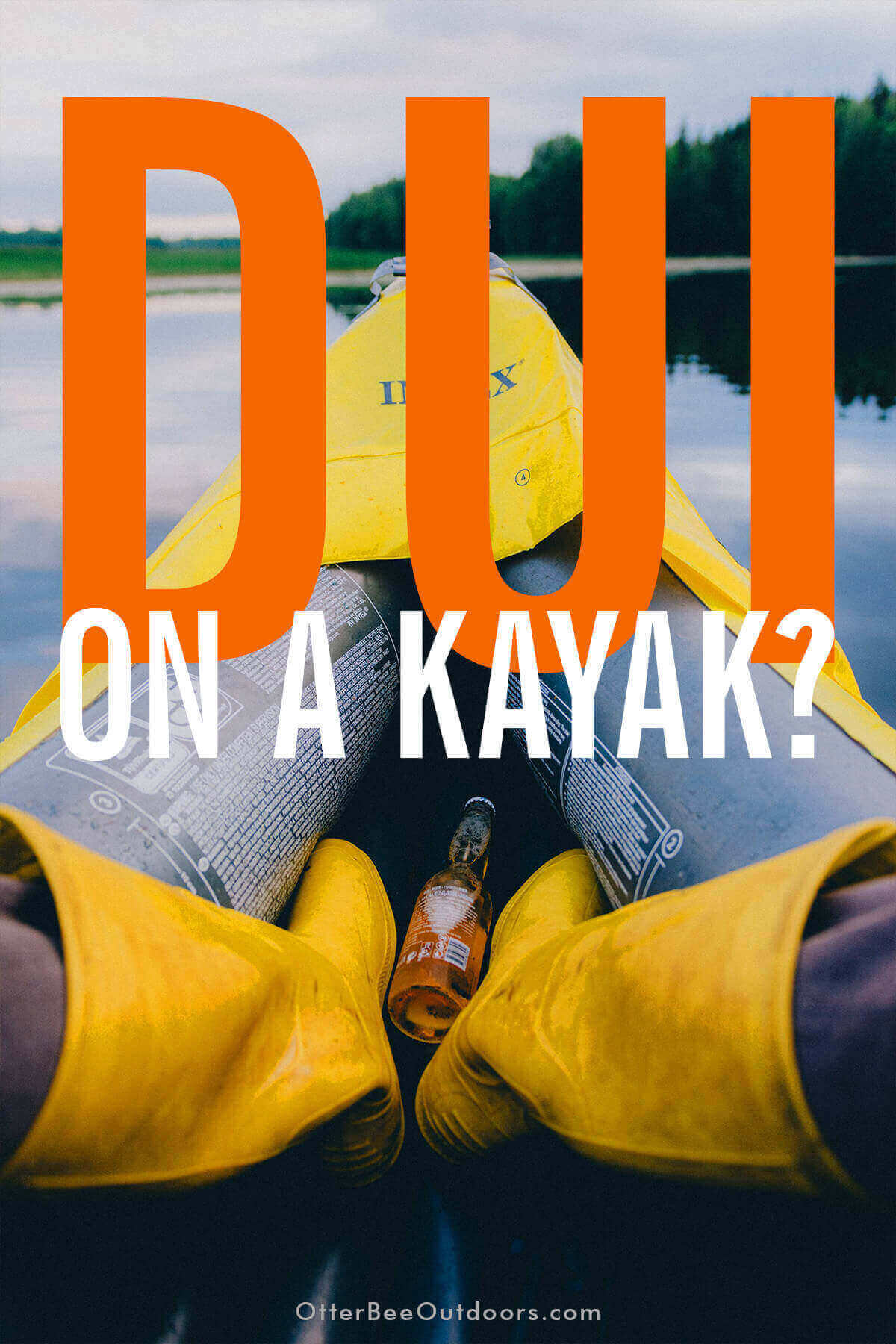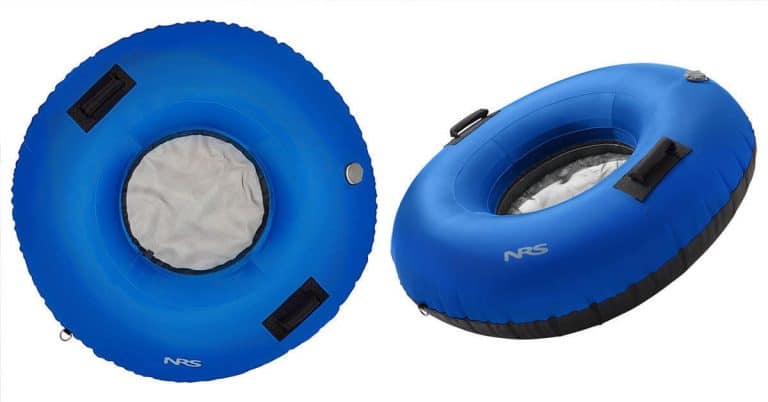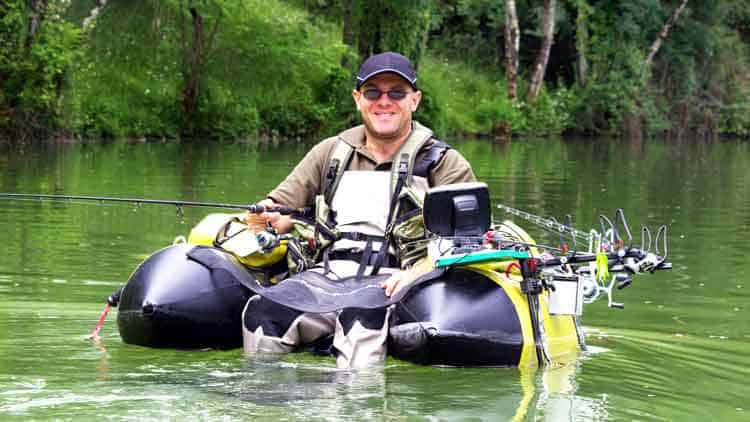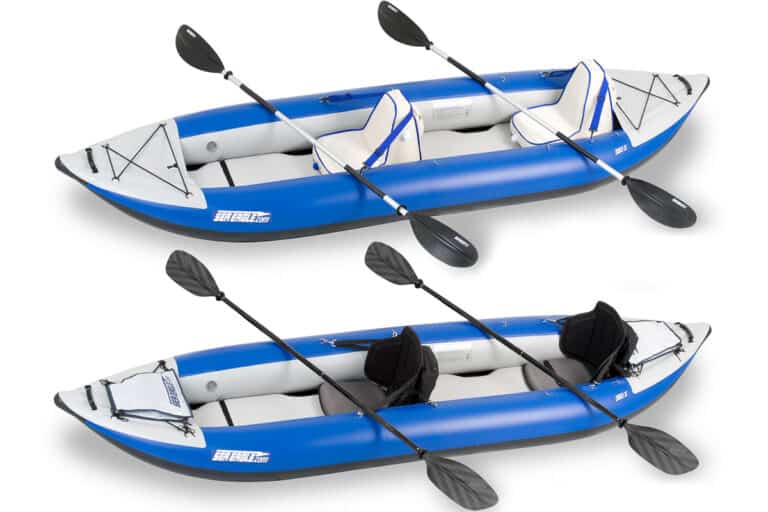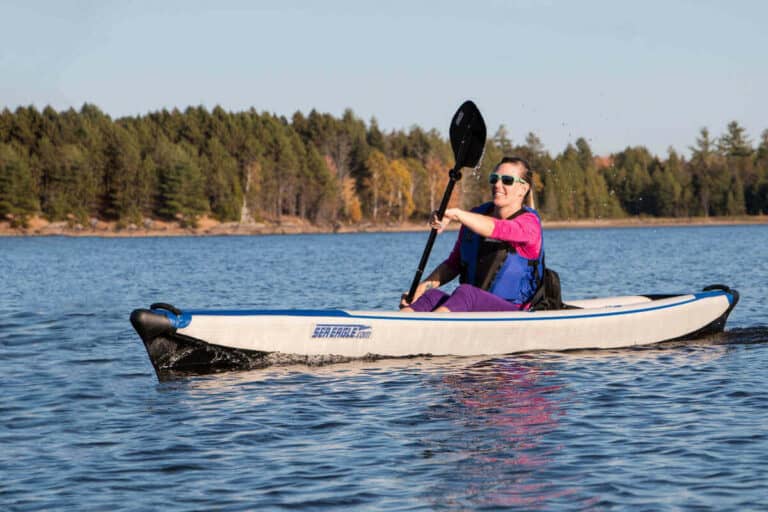Disclosure: I am compensated for purchases made through some links on this site. Click for details.
You have probably seen other kayakers drinking beer or other alcoholic beverages while enjoying a leisurely paddle or fishing from their kayak. The prevalence of alcohol use by paddlers has fueled confusion over the legality of drinking and paddling.
Can you get a DUI in a kayak? The short answer is yes.
In most states, you can get a BUI (Boating Under the Influence) or BWI (Boating While Intoxicated), the boating equivalent of a DUI (Driving Under the Influence), while operating a kayak or other watercraft propelled by motor, wind, paddle or oar on public waters with a BAL of 0.08% or greater.
The legal limits of North Dakota and Wyoming differ from the other 48 states. They allow a Blood Alcohol Limit (BAL) of 0.10%.
Boating under the influence laws include more than just alcohol.
Being under the influence of any controlled substance (alcohol, over-the-counter medication, prescribed medication, marijuana, legal drug, or illicit drug) while operating a kayak can land you in serious trouble especially if you are a repeat offender. Repeat offenses can lead to a felony BUI.
Minimum penalties for a BUI charge may include a hefty fine, jail time, community service, and potential loss of your boating privileges, boating license, and driver’s license.
From the boating laws of individual states within the U.S. to the New Zealand Maritime Transport Act, kayakers in other countries worldwide are subject to BUI regulations.
This information contained in this article is not to be considered legal advice. I am not an attorney and I do not offer legal counsel. If you have gotten a DUI in a motor vehicle, kayak, or other vessel, find an attorney.
Are All Kayaks Considered a Vessel Under BUI Laws?
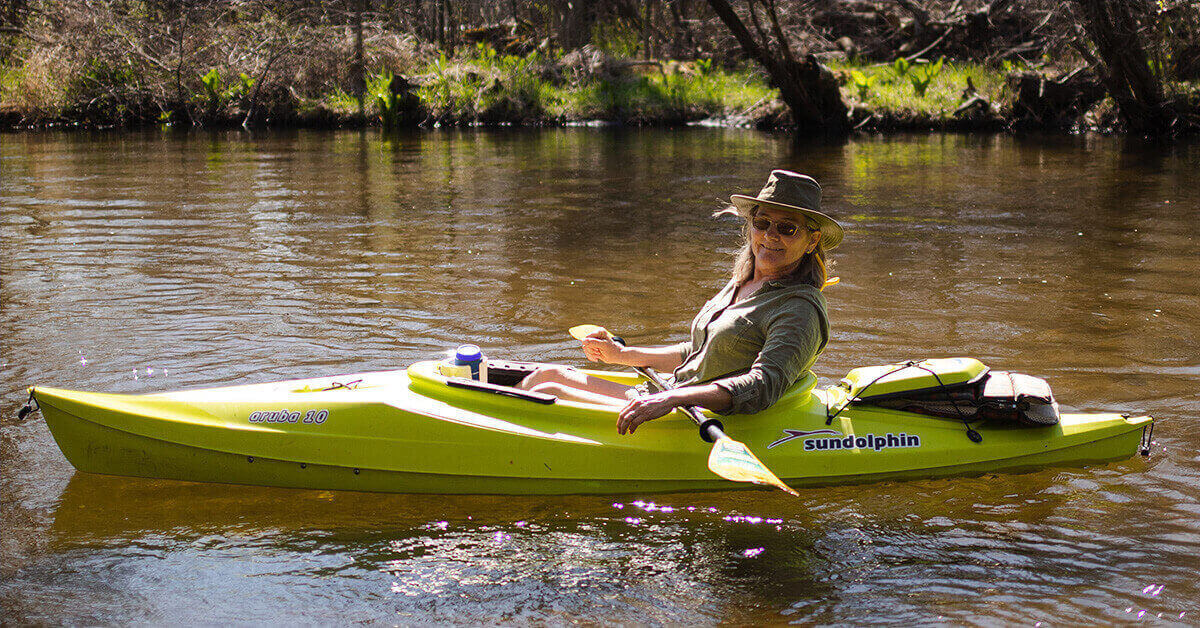
There are different types of kayaks… inflatable, hard shell, paddle, pedal, and motorized.
While motorized watercraft fall under BUI laws, non-motorized watercraft may not be in certain states under certain jurisdictions. Generally speaking, watercraft operated by motor, wind, paddle, or oar are considered to be water vessels and typically fall under the same laws as power boaters
For the United States, the Coast Guard’s determination of what is or is not a vessel often sets precedence for a state’s ruling but this isn’t always the case.
The U.S. Coast Guard, definition of the word vessel found in 1 USC 3 is:
“The word “vessel” includes every description of watercraft or other artificial contrivance used, or capable of being used, as a means of transportation on water.”
The Coast Guard considers recreational boats like kayaks, canoes, paddleboards, and even inner tubes to be vessels. For the Guard, a kayak falls under BUI laws. But the criminal code in Ohio and other states excludes flotation devices with one air chamber. Most river tubes and many fishing float tubes, rafts, and inflatable kayaks have only one tube.
Potential charges, however, are not limited to a DUI charge. Someone drunk on public waters could be arrested or receive a citation for different offenses even if their vessel is not covered by alcohol legislation. Let’s take a look…
Related Article: 12 Types Of Inflatable Boats According To The U.S. Coast Guard
Charges Other Than Boating Under the Influence
Did you know that many public waters are part of a national, state, or local park system which prohibits alcohol use? A law enforcement officer can make an arrest if a person is guilty of drinking alcohol in a park.
If you are kayaking, canoeing, or paddle boarding on public waters that allow adult beverages, you are not exempt from public intoxication charges. While alcohol consumption may be legal, public intoxication is not. Law enforcement officers can arrest or issue a drunk and disorderly charge or drug possession charge even when DUI laws are not applicable to your area.
Littering is also a problem with kayakers who drink. While littering is illegal in all states, the penalties vary. To learn more about litter laws in your area, check out the State Littering Penalties at the National Conference of State Legislatures. Always bring along something to keep your trash in while kayaking.
What’s the Fine for a DUI on a Kayak?
Boating and drinking laws vary by state and so do the fines for a BUI. Penalties for a BUI may include hefty monetary fines, jail time, loss or suspension of operating privileges, possible suspension of your driving license, possible felony conviction, required completion of a substance abuse treatment program, and more.
To avoid paddling on the wrong side of the law, visit the website of any governing body that has jurisdiction over the water on which you plan to kayak. Learn the local laws governing drinking for the area and call the state or park service for clarity if you are unclear.
Boat-Ed has thoroughly covered the legal blood alcohol content, minimum fine, and penalties for each state. I’d like to defer to their list here instead of reproducing it. You’ll be hard-pressed to find a better resource outside the law enforcement agencies that govern the body of water you intend to kayak.
How to Avoid a DUI on a Kayak
- Simple!… Don’t drink alcohol or use drugs while kayaking.
- Don’t paddle drunk or under the influence of any drug… No pre-partying before getting into a kayak.
- If you are going to drink or get high, it is best to do it after kayaking.
- According to the U.S. Coast Guard low-risk drinking guidelines, consume no more than one standard alcoholic beverage per hour, no more than two standard drinks per occasion, and never exceed three standard drinks per occasion.*
- Respect law enforcement officers. Maybe they will cut you some slack or issue a less serious citation.
- Never get your party on while kayaking with a minor. Jeopardizing the safety of a minor will not sit well with an officer that stops you.
- If you drink and kayak, drink responsibly and use a breathalyzer to make sure you are under the legal limit.
- Bring along food and snacks.
- Bring plenty of hydrating drinks like water.
(*Please Note: A standard drink according to the NIAAA (National Institute on Alcohol Abuse and Alcoholism) is typically 14 grams of pure alcohol; 12 ounces of regular beer, 5 ounces of wine, and 1.5 ounces of distilled spirits.)
What If You Are Stopped for a BUI on a Kayak?
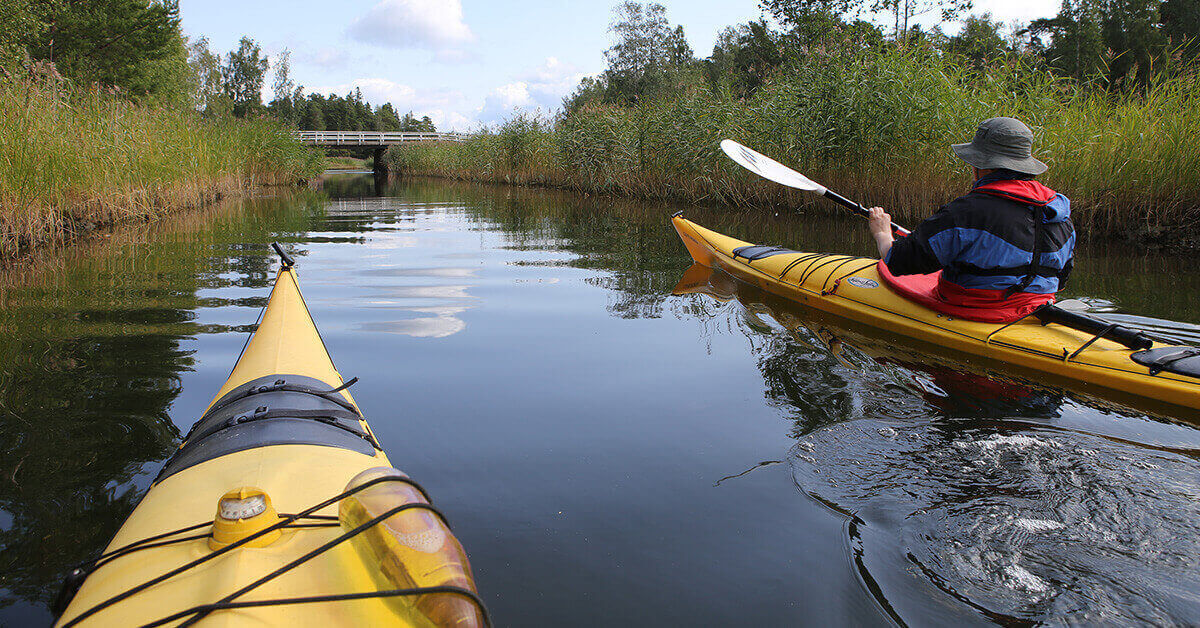
I’ve seen officers with binoculars hiding on the side of the Harpeth River in TN. They wade out into the river to pull over kayakers and canoers who are suspected of an infraction.
If you are stopped by a park ranger, Fish and Wildlife officer, police officer, or Coast Guard officer while kayaking under the influence, you are likely to be charged for boating under the influence if you are over the legal blood alcohol limit and worse if you are in the possession of illegal drugs.
Be honest, kind, respectful, and considerate. These officers are there to do their job. Being courteous may get leniency in some situations.
At the end of the day, if you choose to kayak under the influence, you have to live with the consequences of your actions.
Dangers of Boating Under the Influence
The dangers of BUI impair the nervous system. This includes impaired vision, impaired depth perception, reduced peripheral vision, lower body temperature, and a loss of coordination, balance, reaction time, and judgment. A kayaker’s impairment can be exaggerated by other factors including wind, waves, spray, the boat’s motion, the sun’s reflections, paddling fatigue, hypothermia due to an increased sensation of warmth, and dehydration from alcohol, sun, heat, and exertion.
Alcohol affects judgment. Boaters under the influence of alcohol or drugs increase the risk of fatal boating accidents, injuries, damage to personal property, loss of gear, and annoying others in their vicinity. Your primary concern should be the safety of others and the ramifications of consuming alcohol while boating.
According to the U.S. Coast Guard, alcohol use is involved in about a third of all recreational boating fatalities, and a boater with a blood alcohol concentration (BAC) above 0.10% is 10 times more likely to die in a boating accident than that of a boater who has not consumed alcohol. Boat passengers are also at a greater risk of injury or death, especially if they are also consuming alcohol. (See the U.S. Coast Guard BUI Initiatives for more information.)
TIP: If you are going to kayak under the influence, don’t just have a lifejacket on board, each person should wear a PFD to reduce their risk of drowning.
Alcohol use also substantially increases the likelihood of physical assaults and sexual assaults.
The daughter of a local sheriff once told me that their family would not canoe on the Buffalo River in TN without a firearm due to the growing number of alcohol-related sexual assaults on the river. Back then the river was known for the Mardi Gras-like behavior of drinking, flashing breasts, and throwing beads. That same year a group of friends and I rented canoes from an outfitter on the Buffalo River and received a warning about sexual assaults. Thankfully, law enforcement stepped in to control the problem.
Frequently Asked Questions
Will a BUI on a Kayak Affect Your Driver’s License?
Recreational boaters convicted of a BUI may permanently lose their driver’s license or have it suspended in the following states:
- California
- Alaska
- Indiana
- Louisiana
- Massachusetts
- New Hampshire
- New Jersey
- Utah
Can Passengers Drink Alcohol on a Kayak?
It depends on the state’s laws, the park system, and the waterway just as it does for the boat’s operator. The passenger would also be subject to public intoxication charges, drunk and disorderly charge, or drug possession charge if applicable.
How Does Alcohol Use Affect Boat Passengers?
A kayak operator that is drunk boating puts passengers in unnecessary danger. Passengers are at a greater risk of boating injuries or death, especially if they are also drinking.
Can You Get a BUI While High on Marijuana?
Yes. You can get both a boating under the influence charge and a drug possession charge.
Can You Get a BUI on a Private Lake or Pond?
If your state bans boating under the influence at the state level, you could potentially get a BUI on a private lake or pond.
Who Can Cite You for Boating Under the Influence?
A park ranger, Fish and Wildlife officer, police officer, or Coast Guard officer is most likely to cite you for BUI.
Conclusion: Can You Get A DUI On A Kayak?
The simple answer is yes. It is possible for you to get a BUI or BWI while kayaking. Intoxicated boating is frowned upon by law enforcement the world over.
If you are confused by the terminology, the only difference between a BUI and a BWI is the wording, and the only difference between a BUI and a DUI is whether the vehicle was operated on land or in water.
Boating under the influence can cause property damage, injury, and death and legal trouble can go far beyond a BUI.
Kayakers suffer alcohol-related fatalities every year. Don’t drink and paddle.
